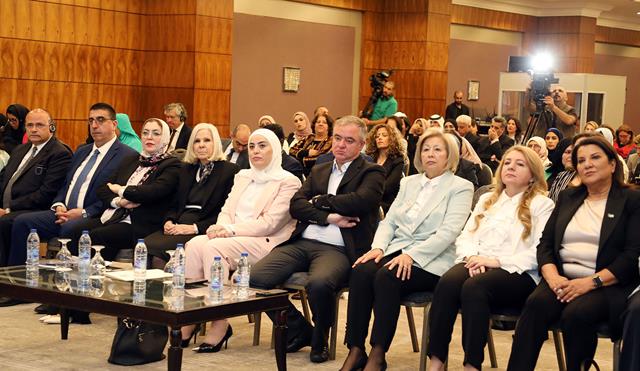(MENAFN- Jordan Times) AMMAN - A regional meeting on the implementation of the Arab Strategy for the Prevention of and Response to All Forms of Violence in Asylum Context, especially sexual violence against women and girls, kicked off in Amman.The meeting is organided by the League of Arab States, in cooperation with the United Nations High Commissioner for Refugees (UNHCR), the Jordan News Agency, Petra, reported.
The two-day meeting aims to define regional priorities in the field of preventing and responding to violence against women and girls in the asylum context in the Arab region, within the framework of the action plan annexed to the Arab strategy, and in consultation with other actors working to prevent and respond to violence against women and girls in the Arab region.
It also aims to review national initiatives and current national strategies on combating violence against women and girls seeking asylum, emphasising the significance of delivering high-quality services, guaranteeing the quality of mental health support and psychosocial support, as well as concentrating on the significance of supporting countries hosting refugees so they can keep offering specialised services to refugees.
The meeting brings together a number of ministers, ambassadors and representatives of concerned authorities from member states of the Arab League, in addition to actors concerned with women and girls, pertinent UN offices and organisations and relevant stakeholders.
The Arab strategy was developed by the General Secretariat of the League of Arab States, in collaboration with UNHCR, and approved by the Council of the League of Arab States at the ministerial level in 2021.
It seeks to provide an Arab guiding framework that supports the efforts of member states to protect refugees from all forms of violence, including sexual violence, by strengthening prevention, protection and response to violence, in accordance with national law and international agreements.
In remarks at the opening ceremony, Minister of Social Development Wafa Bani Mustafa said that wars and conflicts are brutal to all parties involved, but are especially harsh on women, stressing that participation of women and girls in the peace-building and negotiating processes is necessary, given that they would inevitably become victims of armed conflict.
“Jordan has been a leader in including the problem of preventing violence against refugee women into the national strategy, through the implementation of UNSCR 1325, whereby a number of measures were addressed in order to protect Syrian victims and refugees, both men and women,” she added.
She also emphasised the Ministry of Social Development's initiatives to provide refugee women with protection and social care, as well as the attempts to house all those in need of care and protection, regardless of nationality, in social protection centres and houses.
For her part, Assistant Secretary General, Head of the Social Affairs Sector at the League of Arab States, Haifa Abu Ghazaleh said that the purpose of the gathering is to raise awareness of the problem of abuse against women and girls who are refugees.
“The Sudan crisis, which caused fresh waves of emigration and asylum and had a significant impact on women and girls, was the most recent conflict in which women and girls are still exposed to a variety of threats,” she added.
Abu Ghazaleh also commended Jordan's efforts and initiatives to host refugees regardless of their nationalities, providing various health, educational, and other services, saying that even though Jordan is not a signatory to the 1951 Refugee Convention, it is motivated by humanitarian and moral considerations, opening its doors to receive refugees and provide them with relief.
The head of UNHCR's office of protection services in the Middle East and North Africa said that the strategy aids in providing a common framework for action in the Arab region for governments, UNHCR and other key partners, including other UN agencies, international and national NGOs, and community-based organisations, to strengthen prevention and response to gender-based violence in the asylum context.
Houria Al Tarmal, Libya's Minister of State for Women's Affairs, said:“Our issue today is not merely a national issue, but rather a crisis that the world suffers from without exception. It is even more dangerous in the countries that attract refugees, including Libya, which is a transit area for people of African descent.”
Pramila Patten, Special Representative of the UN Secretary-General on Sexual Violence in Conflict, said that the purpose of the gathering is to unite the Arab world's voice in support of women and girls who are more vulnerable to sexual and gender-based violence in situations of displacement.




















Comments
No comment